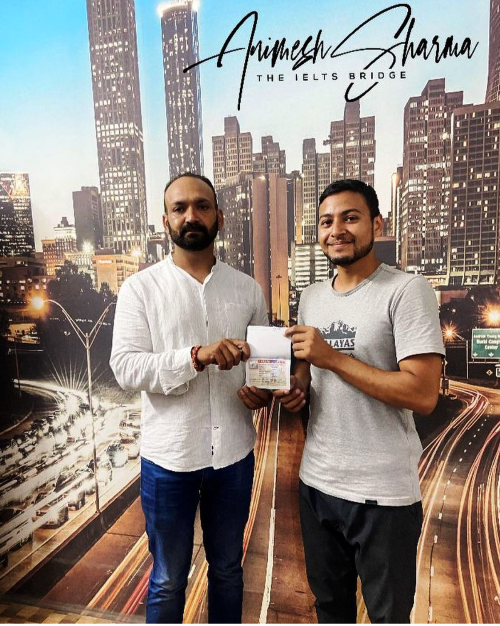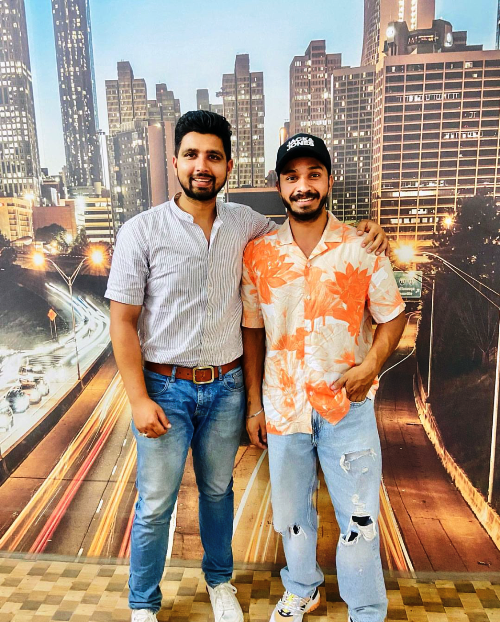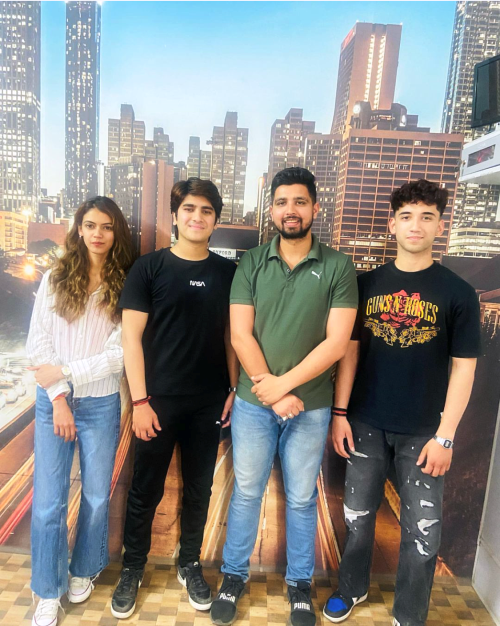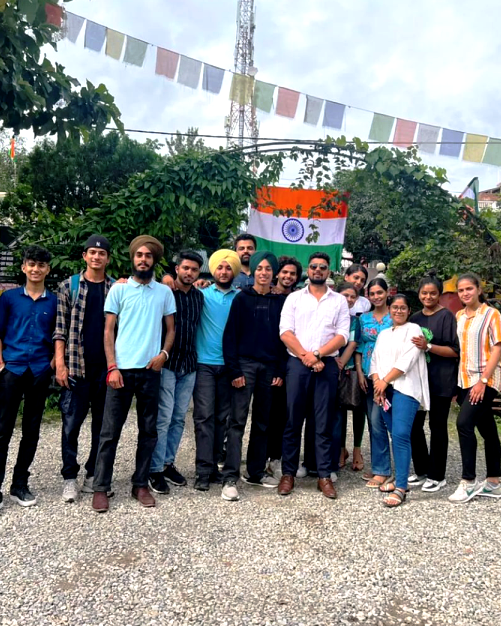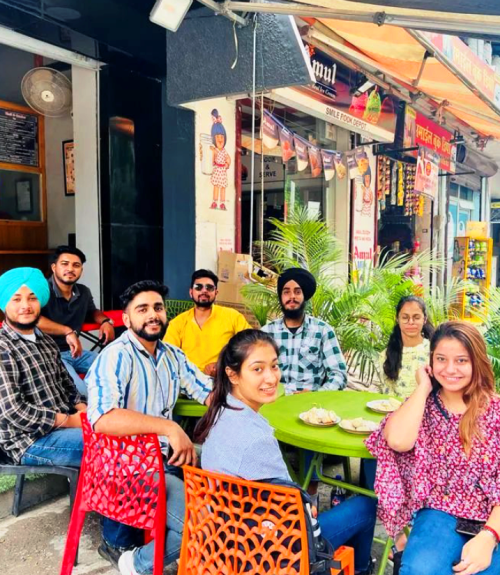Section 1:Booking a Wessex Cottages Holiday
Questions 1-7: TRUE, FALSE, NOT GIVEN
[In this type of question, candidates are asked to find out whether:
The statement in the question agrees with the information in the passage – TRUE
The statement in the question contradicts the information in the passage – FALSE
If there is no information on this – NOT GIVEN
For this type of question, you can divide each statement into three independent pieces and make your way through with the answer.]
Question 1: The office is open on Saturdays in February but closes slightly earlier than on weekdays.
Keywords for this question: office, open, on Saturdays, February, closes, slightly earlier, on weekdays,
Take a look at the lines of paragraph no. 3, in the ‘21st October to 30th March’ section. It says,
“Monday, Tuesday, Wednesday, Friday 9.00 a.m. to 5.00 p.m. and Thursday 9.30 a.m. to 5.00 p.m.
Saturday 9.30 a.m. to 4.30 p.m.
Sunday Closed.”
Here, 21st October to 30th March means office is open in February, Saturday 9.30 a.m. to 4.30 p.m. = office is open on Saturdays but closes slightly earlier than on weekdays,
So, the answers are: TRUE
Question 2: On receipt of your deposit, Wessex Cottages will confirm your booking by telephone.
Keywords for this question: receipt, deposit, Wessex Cottages, will confirm, booking, by telephone,
Have a look at paragraph no. 7, as the writer of the text explains, “When we receive your booking form and deposit, your reservation will be confirmed – we will send you a Booking Confirmation, together with advice on how to reach your holiday cottage and the telephone number of a local contact should you require further details on the cottage before leaving home. . .. .”
Here, Booking Confirmation means an email sent to the clients. (in the UK region)
So, the question statement contradicts the information in the text.
So, the answer is: FALSE
Question 3: For UK bookings, any outstanding balance must be paid within ten weeks of sending the deposit.
Keywords for this question: UK bookings, any outstanding balance, must be paid, within ten weeks, sending the deposit,
Again, in paragraph no. 6, the last lines say, “ .. .. Outstanding balances on bookings made in the UK must be settled within 10 weeks of sending the deposit.”
Here, bookings made in the UK = UK bookings, must be settled within 10 weeks must be paid within ten weeks,
So, the answer is: TRUE
Question 4: Between the departure of one visitor and the arrival of the next, the properties are visited and made ready.
Keywords for this question: between, departure of one visitor, arrival, next, properties, visited and made ready,
Have a look at the ‘Departure’ section, in lines 1-3, “On the morning of departure, please leave your holiday property by 10 a.m. to allow caretakers sufficient time to prepare the property for the next visitors. . . ..”
Here, On the morning of departure = Between the departure of one visitor, the next visitors = the arrival of the next, allow caretakers sufficient time to prepare the property = the properties are visited and made ready,
So, the answer is: TRUE
Question 5: The cost is lower if you make a last-minute booking.
Keywords for this question: cost, lower, if, make, last-minute booking,
Have a look at the ‘LAST-MINUTE BOOKINGS’ section. It says, “ . .. . . If your reservation is made within 10 weeks of the holiday start date, full payment is due on booking.”
Here, full payment is due on booking = the cost is just as same as before,
So, the answer is: FALSE
Question 6: Electricity is included in the rental of the majority of Wessex Cottages properties.
Keywords for this question: electricity, included, rental, majority, Wessex Cottages properties,
Take a close look at ‘Electricity’ section. It says, “In most Wessex Cottages properties electricity must be paid for in addition to the holiday price. . …”
Here, In most Wessex Cottages properties = the majority of Wessex Cottages properties, must be paid for in addition to the holiday price = not included in the rental,
So, the answer is: FALSE
Question 7: Beach towels are available for hire.
Keywords for this question: beach towels, available, for hire,
Take a close look at ‘Linen’ section. It says in lines 7-8, “ . .. . .. , but will not include towels for swimming or beach use. .. ..”
Here, towels for swimming or beach use = Beach towels, will not include = not available,
So, the answer is: FALSE
The text is on some advertisements.
Questions 8-14: Classifying situations with advertisements
[This type of question asks candidates to classify some situations from the given advertisements. Candidates are given some situations based on the advertisements, and a list of advertisements, which is listed as A, B, C etc. They must match the correct situations with the correct options.
N.B.: This question doesn’t follow any sequence. So, they should be answered after all other questions in the passage.]
Question 8: I have had an accident in my car. One of the rear lights is broken. I need to have it replaced.
Keywords for this question: had an accident, one of the rear lights, broken, have it, replaced,
Take a look at advertisement B.
Here, Body repair service/ Restorations/ Breakdown service = broken lights can be replaced,
So, the answer is: B
Question 9: I am helping to organise a wedding. The party will be at the bride’s family’s house but we are looking for someone to provide the food.
Keywords for this question: helping to organise, wedding, party, will be, at the bride’s family’s house, but, looking for someone, provide the food,
Have a look at advertisement D.
Here, Catering/ We will supply the menu = provide the food,
So, the answer is: D
Question 10: I have just found a house that I want to buy and I need a lawyer to help me with all the paperwork.
Keywords for this question: found a house, want to buy, need a lawyer, to help me, with, all the paperwork,
Have a look at advertisement K.
Here, solicitors = a lawyer, legal services = to help with all the paperworks,
So, the answer is: K
Question 11: I have just returned from a holiday in Thailand, where I bought a Thai recipe book. I want to use the recipes in my restaurant, but I need someone to help me understand them.
Keywords for this question: just returned, from a holiday, Thailand, bought, Thai recipe book, want to use, recipes, my restaurant, but, need someone, help, understand them,
Take a look at advertisement L.
Here, TRANSLATION & INTERPRETING = someone to help . .. understand Thai language,
So, the answer is: L
Question 12: I have just got a new job. I need to find somewhere to live locally.
Keywords for this question: just got a new job, find somewhere, to live locally,
Take a look at advertisement G.
Here, An independent property service, providing expert knowledge = find somewhere to live locally,
So the answer is: G
Question 13: Some friends are coming to visit me for the weekend, but my house is too small to put them all up. I want to find somewhere for them to stay.
Keywords for this question: some friends, coming to visit, for the weekend, house, too small, find somewhere for them, to stay,
Have a look at advertisement J.
Here, facilities with good-sized family rooms all with: colour TV, Tea/coffee-making facilities = somewhere for guests to stay,
So the answer is: J
Question 14: I work in a local firm of solicitors. It’s nearly the end of the tax year and I am trying to find someone to help us organise our finances.
Keywords for this question: work in a local firm, of solicitors, nearly the end of the tax year, trying to find, someone to help, organise, finances,
Have a look at advertisement A.
Here, All professional services, including Auditing, Accountancy and Taxation = help . .. . organise our finances,
So the answer is: A
Section 2:Courses Available at North Coast College Campuses
Questions 15-21: Matching information with appropriate information
[In this type of question candidates are asked to match some information as questions with some information given from the passage. These questions will not follow any sequential order. So, skimming first for the keywords and then scanning to match the information is the best option to find answers to these questions.]
Question 15: Wollongbar
In the first paragraph (‘Agriculture’ section), the writer of the text says in lines 2-4, “. . .. . The Wollongbar Campus is renowned for its Tropical Fruit Growing program and has introduced modules on macadamias, bushfoods and coffee production. .. ..”
Here, Tropical Fruit Growing program = banana cultivation,
So, the answer is: B (banana cultivation)
Question 16: Grafton
Again, in the ‘Agriculture’ section, take a look at the last lines, “ .. . . Grafton, meanwhile, offers traineeships in agriculture including Beef and Dairy.”
Here, Beef and Dairy = cattle farming,
So, the answer is: H (cattle farming)
Question 17: Tweed Heads
The answer to this question can be found in the ‘Health programs’ section as the writer mentions in lines 2-4 of the first paragraph, “ . .. . Fitness Instruction courses are offered at Tweed Heads and teach students how to put together and lead a safe fitness program.”
Here, Fitness Instruction courses = recreation programs,
So, the answer is: K (recreation programs)
Question 18: Lismore
In the ‘Health programs’ section, line no.1 of the second paragraph says, “Lismore offers the Aged Support Program and . .. ..”
Here, Aged Support Program = elderly care,
So, the answer is: E (elderly care)
Question 19: Port Macquarie
Again, in the ‘Health programs’ section, lines 1-2 of the second paragraph say, “ . . .. and Port Macquarie offers the Early Childhood Nursing program. .. ..”
Here, Early Childhood Nursing program = infant illness,
So, the answer is: D (infant illness)
Question 20: Ballina
To answer this particular question, we have to go to the ‘Environmental Studies’ section. Here, in the final lines of the first paragraph, the writer says, “. . .. The Environmental Practice course, which includes Coastal Management, is offered through Ballina campus.”
Here, Coastal Management = beach protection,
So, the answer is: I (beach protection)
Question 21: Coffs Harbour
For this question, let’s go to the final paragraph in the ‘Environmental Studies’ section, where the writer says in the final lines, “ . .. . Marine Industry Management programs are offered at Coffs Harbour.”
Here, Marine Industry Management programs = fish farming,
So, the answer is: F (fish farming)
Information on Photocopying
Questions 22-27: TRUE, FALSE, NOT GIVEN
[In this type of question, candidates are asked to find out whether:
The statement in the question agrees with the information in the passage – TRUEThe statement in the question contradicts the information in the passage – FALSEIf there is no information on this – NOT GIVEN
For this type of question, you can divide each statement into three independent pieces and make your way through with the answer.]
Question 22: Prepaid Services Cards are in use in three locations.
Keywords for this question: Prepaid Services Cards, in use, three locations,
Let’s have a look at the first paragraph, “Information Services provide a Prepaid Services Card system for student and staff use of photocopiers and associated equipment in the Library, and use of laser printers in B Block. The same system has recently been installed in the Student Representative Council (SRC) for use with photocopiers there.”
Here, the Library, B Block & the Student Representative Council (SRC) = three locations,
So, the answer is: TRUE
Question 23: You can only buy a Prepaid Services Card at the Library.
Keywords for this question:can only buy, Prepaid Services Cards, Library,
In the second paragraph, take a look at lines 3-5, “ .. .. .. Initially, students and other users will have to purchase a Prepaid Services Card from a teller machine located in the Library or B Block Computer Labs. . . ..”
This means there are two places from where users can buy a Prepaid Services Card; teller machine and B Block Computer labs.
So, the answer is: FALSE
Question 24: The smallest amount that can be added to the Prepaid Services Card at the Library teller machine is $5.
Keywords for this question: smallest amount, can be added to, Prepaid Services Card, Library teller machine, $5,
In paragraph no. 3, the maximum amount of prepaid services have been mentioned, “ . .. The maximum amount of prepaid services or value that can be added to a card is $50.00.”
However, there is no mention of the smallest amount.
So, the answer is: NOT GIVEN
Question 25: The Prepaid Services Card can be used to pay library fines.
Keywords for this question: Prepaid Services Card, pay, library fines,
Again, we do not find any comments made about paying library fines.
So, the answer is: NOT GIVEN
Question 26: Notes and coins can be used in all teller machines.
Keywords for this question: notes and coins, can be used, all teller machines,
In the fourth paragraph, have a close look at the last lines, “ . . .. These teller machines accept any denomination of coins or notes up to $50.00. The SRC has a smaller, coin only, teller machine.
Here, coin only = only coins can be used here; no notes.
So, the answer is: FALSE
Question 27: A PIN is allocated when you purchase your Prepaid Services Card.
Keywords for this question: PIN, allocated, when, purchase, Prepaid Services Card,
In the final paragraph, take a look at lines 1-2, “For added security, a card user may choose to allocate a PIN or Personal Identification Number to their Prepaid Services Card. .. .. .”
Here, card user may choose to allocate a PIN = a PIN is optional; it depends on the choice of the users,
So, the answer is: FALSE
Section 3:Understanding Bee Behaviour
Section 3:Understanding Bee Behaviour
Questions 28-34: List of headings
[In this question type, IELTS candidates are provided with a list of headings, usually identified with lower-case Roman numerals (i, ii, iii, etc,). A heading will refer to the main idea of the paragraph or section of the text. Candidates must find out the equivalent heading to the correct paragraphs or sections, which are marked with alphabets A, B, C and so forth. Candidates need to write the appropriate Roman numerals in the boxes on their answer sheets. There will always be two or three more headings than there are paragraphs or sections. So, some of the headings will not be used. It is also likely that some paragraphs or sections may not be included in the task. Generally, the first paragraph is an example paragraph which will be done for the candidates for their understanding of the task.
Tips to answer this question: Don’t read the list of headings first. Have a quick look at the questions, and go straight to the first question and start reading the paragraph associated with it. Skimming is the best reading technique. You need not understand every word here. Just try to gather the gist of the sentences. That’s all. Read quickly, and don’t stop until you finish each sentence.]
Question 28: Section A
To find this answer, we have to read the middle part of the paragraph carefully. Here, the author of the text says, “ . . .. For bees are arguably the only animals apart from humans which have their own language. . . ..”
Here, the only animals apart from humans which have their own language = The special position of bee language,
So, the answer is: vi (The special position of bee language)
Question 29: Section B
The final lines of paragraph B say, “ . .. Von Frisch realised that, in some way, messages were being passed on back at the hive1, messages which said, “Out there, at this spot, you’re going to find food.”
Here, Von Frisch realised that = Von Frisch discovers that,
messages were being passed on back at the hive1 = bees communicate,
So, the answer is: iv (Von Frisch discovers that bees communicate)
Question 30: Section C
Take a look at the first few lines, “But how was it happening? To watch the bees, von Frisch constructed a glass-sided hive. He found that, once the scout bees arrived back at the hive, they would perform one of three dance types. . ..”
Then, in the following lines, he describes all the three dances in details.
So, the answer is: x (Von Frisch discovers three types of dance)
Question 31: Section D
In section D, the first few lines say, “Experimenting further, von Frisch unraveled the mystery of the first two related types, the round and the sickle dances. These dances, he concluded, told the bees simply that, within quite short distances of the hive there was a food source worth chasing. .. .. ..”
Here, These dances . .. told the bees … . .. within quite short distances of the hive there was a food source = the purpose of the two simple dances,
So, the answer is: viii (The purpose of the two simple dances)
Question 32: Section E
Section E has two paragraphs.
First, in the end of the first paragraph, the writer says, “ . .. . If he placed the feeding dish over nine metres away, the second type of dance, the sickle version, came into play. But once he moved it past 36 metres, the scouts would then start dancing the third, quite different, waggle version.”
These lines suggest that bees express the distance by means of different types of dance.
So, the answer is: vii (Expressing distance by means of dance)
Question 33: Section F
In section F, take a close look at lines 5-7, “ . .. . The outside dance was fairly easy to decode: the straight portion of the dance pointed directly to the food source, so the bees would merely have to decode the distance message and fly off in that direction to find their food.”
Here, the outside dance = the dance to communicate from outside the hive,
This means Section F talks about how bees communicate to provide direction to food source from outside a hive.
So, the answer is: ii (Communicating direction when outside a hive)
Question 34: Section G
Take a look at the first few line of Section G, “But by studying the dance on the inner wall of the hive, von Frisch discovered a remarkable method which the dancer used to tell her sisters the direction the direction of the food in relation to the sun. . . .”
Here, the dance on the inner wall of the hive = the dance when inside a hive,
This means paragraph G talks about how bees communicate to provide direction to food source from intside a hive.
So, the answer is: v (How bees communicate direction when inside a hive)
Questions 35-37: Listing names with ONE WORD only
[In this type of question, candidates need to list some names which can be found in the passage. The rules for finding answers to this sort of question are simple. Just scan for correct keywords in the question, locate the paragraphs carefully and find the names. Remember, the questions may not follow any sequential order but they can be found very close to each other.]
The writer mentions THREE kinds of bee dance identified by von Frisch.
List the name the writer gives to each dance.
Keywords for this question: THREE, kinds of, bee dance, identified by, Von Frisch,
The names of the three dances can be found in paragraph D and E.
First, take a look at the first lines of Section D, as the writer explains, ”Experimenting further, von Frisch unraveled the mystery of the first two related types, the round and the sickle dances. . . ..”
Then, take a look at the final line of the first paragraph of Section E, “. .. . But once he moved it past 36 metres, the scouts would then start dancing the third, quite different, waggle dance.”
So, the answers for questions 35, 36 & 37 are: (in any order)
round
sickle
waggle
Questions 38- 40: Completing sentences with NO MORE THAN THREE WORDS
In this type of question, candidates are asked to write maximum of three words to complete sentences on the given topic. For this type of question, first, skim the passage to find the keywords in the paragraph concerned with the answer, and then scan to find the exact word.
[TIPS: Here scanning technique will come in handy. Target the keywords of the questions to find the answers. Remember to focus on Proper nouns, random Capital letters, numbers, special characters of text etc.]
Question 38: von Frisch discovered the difference between dance types by changing the position of _______.
Keywords for this question: Von Frisch, discovered, difference between, dance types, changing, position of,
In section E, lines 4-6 of the first paragraph explains how von Frisch discovered the difference between dance types, as he explains here, “ . .. . . On a hunch, he started gradually moving the feeding dish further and further away and noticed as he did so, that the dances of the returning scout bees also started changing. .. . . .”
Here, the dances of the returning scout bees also started changing = the difference between dance types, moving = changing the position of,
So, the answer is: the feeding dish
Question 39: The dance outside the hive points in the direction of _________.
Keywords for this question: dance, outside the hive, points, direction of,
The answer can be found in section F, in lines 4-6. The author of the text says here, “ … … . The outside dance was fairly easy to decode: the straight portion of the dance pointed directly to the food source, . . .. .”
Here, The outside dance = the dance outside the hive, pointed directly to = points in the direction of,
So, the answer is: the food (source)
Question 40: The angle of the dance from the vertical shows the angle of the food from __________.
Keywords for this question: angle of the dance, from, vertical, shows, angle of the food, from,
First, in section F, take a look at lines 1-3, “ . .. . .. When the scout bees came home to tell their sisters about the food source, sometimes they would dance outside on the horizontal entrance platform of the hive, and sometimes on the vertical wall inside. .. ..”
This means the dance inside the hive wall was vertical.
Then, in section G, the first few lines say, “But by studying the dance on the inner wall of the hive, von Frisch discovered a remarkable method which the dancer used to tell her sisters the direction of the food in relation to the sun. .. . .”
Here, the dance on the inner wall = the dance from the vertical, the direction of the food = the angle of the food,
So, the answer is: the sun




